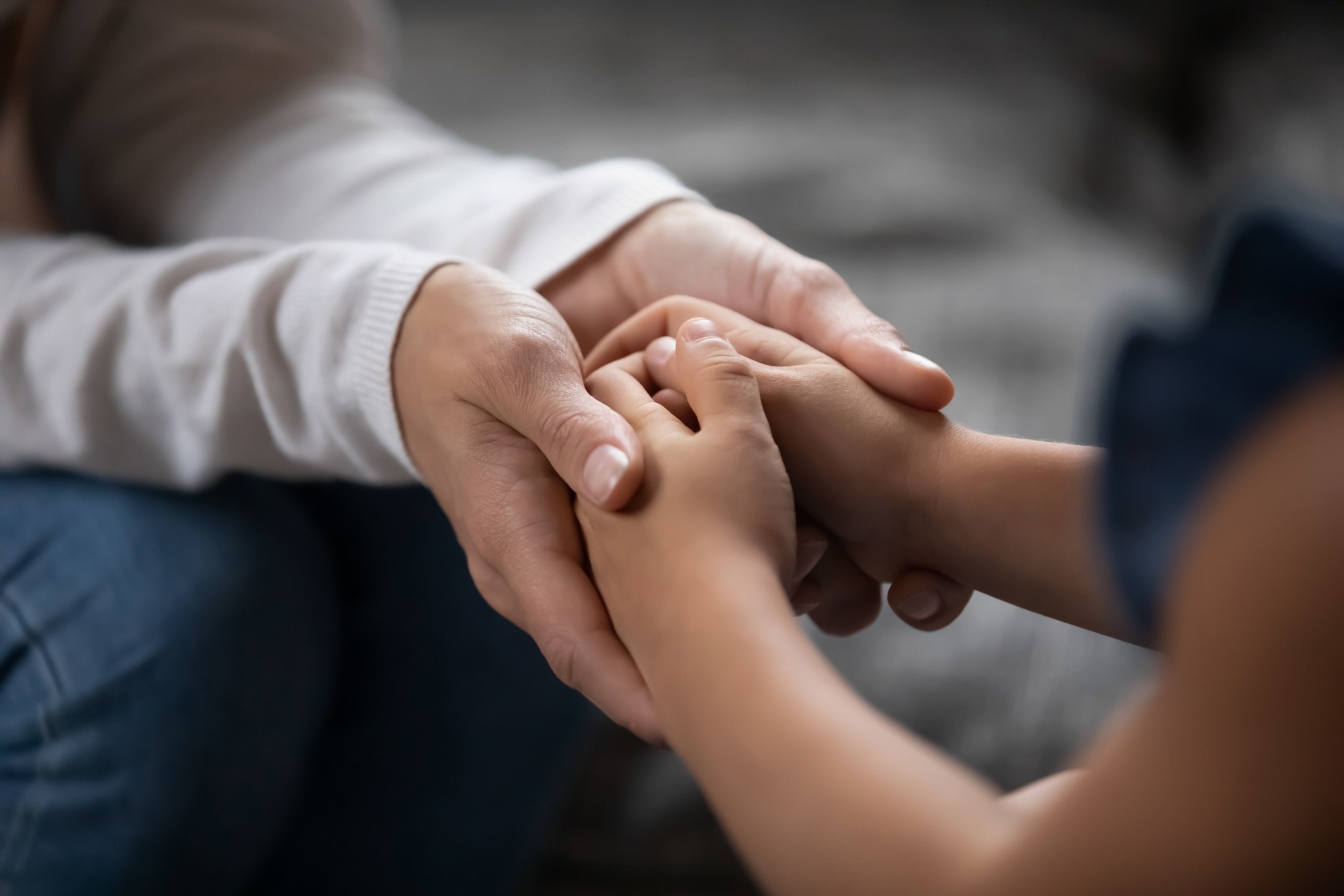They also investigated whether the relationship was influenced by social assets such as having trusted friends and family members.
 Study: Measuring changes in adult health and well-being during the COVID-19 pandemic and their relationship with adverse childhood experiences and current social assets: a cross-sectional survey. Image Credit: fizkes/Shutterstock.com
Study: Measuring changes in adult health and well-being during the COVID-19 pandemic and their relationship with adverse childhood experiences and current social assets: a cross-sectional survey. Image Credit: fizkes/Shutterstock.com
Background
ACEs, including child maltreatment, substance abuse, and domestic violence, are often linked to poorer health and social outcomes throughout life. These factors increase the chances of health-worsening behaviors, worsen psychological health, and lower resilience against stress.
A positive ACE history increases the risk of non-communicable diseases such as cardiovascular disease and cancer throughout adulthood.
However, other experiences can influence ACE-related social and health risks. Friends, family, and community support can potentially reduce poor health risks.
Poorer physical and mental health may leave individuals vulnerable to harm related to pandemic-associated restrictions and concerns. Understanding the risk or protective factors for physical and mental health during pandemics is crucial for all individuals.
About the study
In the present cross-sectional study, researchers evaluated the association between ACEs and COVID-19-related alterations in sleep quality and physical and mental health and the effect of social factors such as closeness with friends and family members on the association.
A household survey was conducted in Wales (national level) and England (local level) using mobile and landline numbers among individuals stratified by age, health regions, and deprivation quintiles.
In addition, a web-based survey was conducted. Information was obtained from Welsh and English residents aged 18 years or older during the initial COVID-19 wave between December 2020 and March 2021.
The study outcomes included changes in self-documented mental health, sleep quality, and physical health at the time of the survey (pandemic period) and a year before (pre-pandemic period); counts of trusted friends and family members; community help knowledge; and severe acute respiratory syndrome coronavirus 2 (SARS-CoV-2) infection.
Nine adverse childhood experiences investigated included sexual, verbal, and physical abuse; drug abuse; alcohol abuse; exposure to domestic violence; parental separation; and residing with an individual with a psychological illness or who has been incarcerated.
The team used a modified version of the Centers for Disease Control and Prevention’s (CDC) ACE tool to evaluate ACE exposure. Multinomial logistic regression modeling was performed for the analyses.
Results
The rate of telephone participation was 33% (n=3,984) for eligible individuals meeting quota sampling requirements. In addition, 887 individuals completed the online surveys (237 and 650 in England and Wales, respectively), resulting in a sample size of 4,871 individuals.
After restricting the analysis to individuals identifying as females and males, 4,673 individuals were considered for the final analysis.
Among the participants, 62% were women, 64% were aged 50 years or older, 94% were white, 51% reported no ACEs, 22% reported one ACE, 17% reported two to three ACEs, and 10% reported four or more ACEs, and 19% reported a history of SARS-CoV-2 infection.
Adverse childhood experiences were strongly associated with worse sleep quality and physical and mental health during COVID-19.
In particular, individuals with four or more ACEs showed three-fold, four-fold, and four-fold higher likelihoods of poorer physical health, mental wellness, and sleep quality, respectively, during COVID-19. In contrast, adverse childhood experiences were related to an increased probability of improved sleep quality for a small fraction of individuals.
Further, individuals with more trusted family members showed a lower likelihood of worsening physical or mental health, irrespective of the number of ACEs.
Among the participants, 29% of males with four or more ACEs and no trusted members in their family or friend circle and those who were unaware of the community moved into the poorer mental health category in comparison to nine percent of individuals with all these social asses and no ACEs. Similar differences based on social assets and ACEs were observed for all outcomes.
Conclusion
Based on the study findings, ACEs are a significant vulnerability affecting large populations and are linked to poorer health outcomes, even during non-pandemic times. During the COVID-19 pandemic, ACEs were linked to increased susceptibility to poorer physical and mental health.
Connectedness, particularly with family members, was crucial for maintaining health during the pandemic. The findings could inform future pandemic responses and identify populations needing additional support.
A smaller subset of individuals with high ACEs experienced improved health outcomes during the pandemic. Post-COVID norms must consider heterogeneity in health effects.